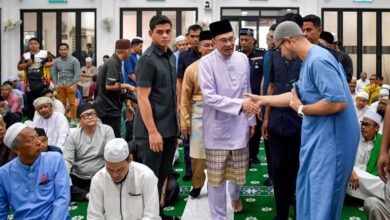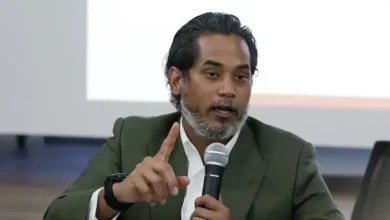UN survey: KL’s urban poor, already in dire state, now worse off despite getting Covid-19 aid

Socio-economic conditions for nearly half the low income families in the capital city’s public flats deteriorated further throughout the last quarter of 2020 as the Covid-19 pandemic and movement curbs pushed unemployment up, two United Nations agencies said.
Joblessness among heads of households doubled to 15 per cent in December 2020 compared to just three months earlier while one in three adults in participating households are still without work, a study jointly held by the United Nations Population Fund (UNFPA) and United Nations International Children’s Emergency Fund (Unicef) found.
Dr Rashed Mustafa Sarwar, representative for Unicef in Malaysia and Special Representative to Brunei Darussalam, said the latest data from the “Families on the Edge” survey suggests that while some families have started to recover, others have regressed and were close to “breaking point.”
“We need to reimagine social protection for the most vulnerable in Malaysia, including through an expansion of coverage of income support for low income families, provision of targeted livelihoods support, particularly for the self-employed,” the agency said in a statement.
Nearly half of the study’s participants also reported further income reduction by the same month, with female-headed households and households headed by persons with disabilities (PWD) the hardest hit.
Income level for the two sub-groups fell by up to a fourth and a third, respectively, compared to December 2019 while their healthy male counterparts fared slightly better.
Still, the overall poverty rate among the participants stood at 42 per cent in December. The rates were higher among PWD-headed households and female-headed households, at 55 and 61 per cent respectively.
Three out five households surveyed said they had difficulties buying basic goods and services while up to 57 per cent of the study’s participants said they were unable to purchase enough
food and 56 per cent were unable to pay bills on time.
The rate was higher among female household heads and PWD with up to 64 and 58 per cent reporting having trouble affording food and 60 and 47 per cent unable to pay bills.
Najib Assifi, UNFPA Representative in Malaysia, said the worsening economy is fast changing the social dynamics of these families.
Households that reported a loss of hope that their situation would improve rose from 37 per cent in September to 41 per cent in December last year.
Only 10 per cent said they expect their financial status to be better, a reduction from 14 per cent during the same period the previous year.
PWDs HoH were found to be the most pessimistic. One in two said they expect their financial
situation to worsen over the next six months, a rate almost unchanged compared to September.
“With increased pessimism further exacerbating mental health issues, it begins to shape unhealthy living environments; psychologically and sometimes physically,” he noted.
“None are more affected than children, those with chronic illnesses, the disabled and of course those who care for them”.
The government led by Prime Minister Tan Sri Muhyiddin Yassin unveiled RM300 billion in relief aid to mitigate the devastation wrought by the novel coronavirus that struck the country but just a sixth of it account for direct cash assistance.
UNFPA and Unicef said current transfers or government assistance constitute 16 per cent of total income for the urban poor households, double the rate compared to pre-crisis level of 8 per cent.
The average amount of assistance received had increased mainly from Bantuan Prihatin Nasional 2.0 and Zakat money. Since May 2020, the average amount of Zakat assistance received has increased by 27 per cent to RM144 per month.
The two UN agencies said there is an urgent need to expand the social safety net for the self-employed. One in five of the heads of households are self-employed and the percentage is higher among female HoH at one of three, the study found.
The findings are part of the third of the Families on the Edge series based on data collected in December 2020, when the government enforced a conditional movement control that started mid October last year as Covid-19 cases began to soar.
The study, spanning six months, used mixed methods such as socio-economic study, wellbeing interviews, as well as a child-led photography component. The fourth, and final, report will be released in April 2021. MM





You must be logged in to post a comment.